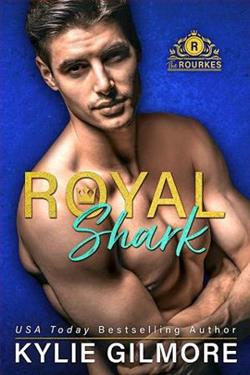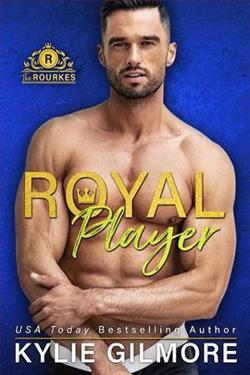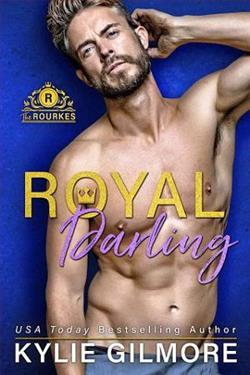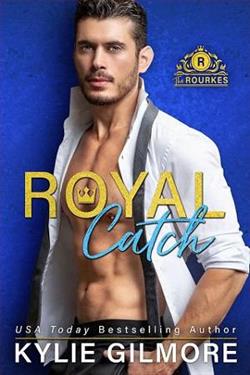Page 74 of Shattered Ice
Zoë: Front page, baby. Chronicle beat the Instagram girls to it.
I click the link. The photo is everywhere already—Adrian, helmet off, mouth on mine, hand in my hair, my body straining toward him in his jersey. The caption reads:Captain Claims Victory On and Off the Ice.
My stomach flips. Some comments are gleeful. Others drip jealousy. Donors will see it. Professors. His father. I should be afraid. Instead, I trace the picture with my fingertip, feeling my lips burn with phantom pressure. I love that he did it. That he wanted the world to see.
Still, in the quiet of my room, one thought lingers like smoke in my chest: proof is also a weapon.
Chapter 43
Adrian
Thetestingroomlookslike it belongs in a hospital. White walls, gray carpet, fluorescent lights humming just enough to get under my skin. A clipboard, a stack of papers, and a woman in a lab coat who smiles too much.
I hate it instantly.
She has me read lines, copy shapes, circle words that blur and slip like fish under the surface. The more I concentrate, the worse it gets. Sweat trickles down my back. She makes notes with a click of her pen every time I stumble. Every click is a gunshot to my pride. I grit my teeth and force my way through it. The room stinks of toner and cheap coffee, my throat dry as dust.
When it’s over, she clears her throat and lays out the results like they’re a mercy. “Mr. Hale, you have classic markers ofdyslexia. Moderate, consistent. This explains the difficulties you’ve described. With accommodations—extra exam time, alternative formats—you’ll be able to level the playing field. Many high-performing athletes—”
I stop listening. I don’t want her pity, her careful tone. I want to tear the papers in half, flip the sterile little desk, and walk out. Instead, I sit there, jaw locked, hands curled into fists so tight my nails cut crescents into my palms. Relief slides in with the shame, a sharp contradiction.I’m not stupid.But the word still echoes in my head in my father’s voice, the one branded into me since I was six.Stupid, useless, a waste of his name.
The woman keeps talking. I nod once and leave before I break something.
Clara’s waiting just outside the door. She’s perched on a plastic chair in the hallway, pretending to read, but when she looks up, her eyes scan me too fast, too carefully, cataloging every crack in my armor. I should keep walking, shut this down before she sees too much. But my legs stop in front of her like they have their own orders.
Her hand slides into mine, small and steady. “You did it.”
The pride in her voice lands heavier than it should. I don’t deserve it. My chest tightens with the urge to shove her hand away before she realizes how ugly this feels. Instead, I crush her fingers in mine until she winces.
“Don’t look at me like that.”
“Like what?”
“Like I’m—” The wordgoodsticks in my throat like a fishhook. “Like I’m fixed.”
Her eyes soften, but not with pity. Never pity. “Not fixed. Just armed. Now you know what you’re fighting. That’s strategy.”
I stare at her, at the calm certainty in her face.Strategy. Not weakness. Not broken.It still tastes like ash. But for the first time, I don’t spit it out.
Back in my apartment, the silence is suffocating. No crowd, no ice, no Clara to hold the edges of me together. Just me and the wall where I’ve been punishing myself for weeks. Playsheets and practice notes are taped in messy rows, scarred with ink, some ripped, others smeared where my sweat bled the lines. Angry scratches slash through diagrams, black scars that look more like wounds than strategy. I stand there staring until the roar in my chest turns into something I can’t swallow.
Then I tear one down.
The paper comes away jagged, tape snapping like a bone. I crush it in my fist and hurl it into the trash. Another follows. And another. The sound of paper ripping ricochets off the walls like gunfire. Each page I tear down feels like peeling off a layer of failure, of shame, of the lies I’ve let live on my skin for too long. When the wall is bare, I’m left shaking, my pulse drumming in my throat.
I grab a fresh sheet and lay it flat on the desk. The pen feels heavy, like it’s waiting to betray me. My grip is too tight, the plastic creaking. The urge to snap it, to put my fist through the drywall, spikes hard and hot. I see it for a split second—splinters, ink, blood—and my body begs for the release.
But I make myself breathe. Once. Twice.
I drag the letters out, each stroke an act of defiance, forcing the violence into the page instead of the wall: DATA. STRATEGY. ADVANTAGE. The lines wobble. The letters tilt. Imperfect. Ugly. But they’re mine. Not my father’s voice, not a donor’s judgment, not some sterile test result.Mine.
I tack the page dead center on the empty wall, the single pin pushed in with a slow, deliberate pressure. I step back. Stare. The heat in my chest doesn’t fade, but it shifts. It’s no longer a fire that wants to burn me down. It’s fuel. A blueprint.
Not weakness. Not broken. A weapon.
That night, after practice, Clara waits by the glass doors of the rink, her breath fogging in the cold air, eyes lit like she’s been holding her breath for me. I don’t tell her I almost walked out of the testing room, that my chest still feels cracked open. I just let her slip her hand into mine, grounding me.
We don’t make it three steps before a shadow peels away from the corridor. Coach Addison. He blocks the exit, his posture relaxed but his eyes sharp. “Clara.”















